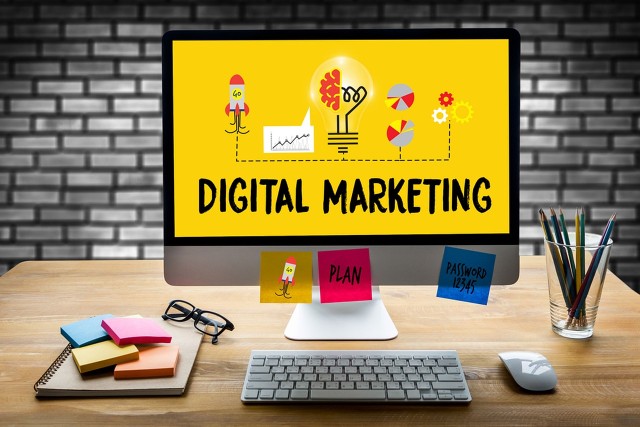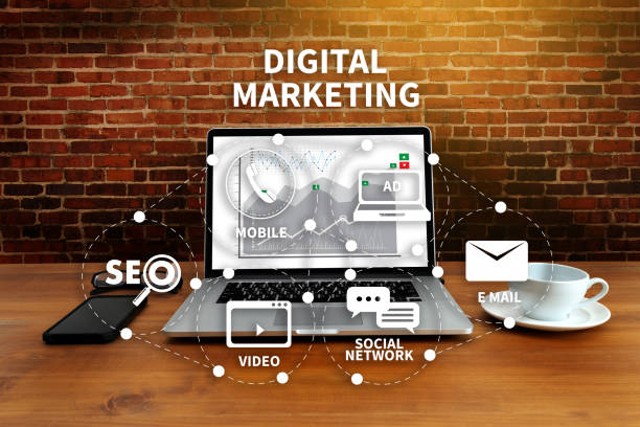The digital marketing world is changing quickly. To stay ahead, businesses need to know the latest trends and predict future ones. In this fast-paced environment, adapting is key to staying competitive and relevant.
Several new trends are shaping the future of digital marketing. AI-driven strategies and the growing importance of video content are creating exciting opportunities. These trends allow marketers to innovate and connect with audiences in fresh and meaningful ways. In this blog, we will look at the latest digital marketing trends for 2024 and give you practical tips to use these developments to your advantage.
READ ALSO: How To Master Facebook Ads for Lead Generation
Key Trends Shaping the Future of Digital Marketing
AI-Driven Marketing
AI is becoming a big part of digital marketing, and its role will keep growing in 2024. All AI tools analyze lots of data to predict what customers want and personalize marketing efforts. AI also helps create engaging content tailored to specific audiences, making the content creation process faster and more efficient.
Example: AI chatbots, like those used by Sephora, recommend products based on customer preferences.
The Rise of Video Content
Video content is very popular and continues to grow. From short videos on TikTok and Instagram Reels to longer content on YouTube, videos effectively engage audiences. Businesses need to invest in high-quality videos to tell their brand story and connect with viewers.
Example: Brands like Red Bull and GoPro use engaging video content to resonate with their audience.
Personalization and Customer Experience
Personalization is crucial for standing out. Customers expect tailored experiences, from personalized emails to product recommendations and targeted ads. Investing in personalized customer experiences is essential for meeting their needs and providing solutions.
Example: Amazon’s recommendation engine, which drives 35% of sales, shows effective personalization.
Voice Search Optimization
With many people using smart speakers and voice assistants, optimizing for voice search is important. Voice search queries are more conversational, requiring different keyword strategies.
Tip: Use natural language and long-tail keywords to optimize for voice search.
The Growth of Social Commerce
Buying products directly through social media platforms like Instagram, Facebook, and TikTok is becoming more common. These platforms are enhancing their shopping features, making it easier for consumers to purchase without leaving the app.
Example: Kylie Cosmetics uses Instagram’s shopping features to drive sales.
The Importance of Data Privacy
As data privacy concerns grow, businesses must prioritize transparency and follow regulations like GDPR and CCPA. Consumers want more control over their data and how it’s used.
Tip: Implement clear data privacy policies to build trust with your audience.
Augmented Reality (AR) and Virtual Reality (VR)
AR and VR offer immersive experiences that enhance customer engagement. From virtual try-ons to interactive demos, these technologies provide new ways to connect with consumers.
Example: IKEA’s AR app, IKEA Place, lets customers see how furniture will look in their homes.
Influencer Marketing Evolution
Influencer marketing is evolving, with a shift towards micro-influencers who have smaller but highly engaged followings. These influencers are valued for their authenticity and relatability.
Example: Fashion brand Revolve partners with micro-influencers to reach niche audiences.
Sustainability and Social Responsibility
Consumers care more about sustainability and social responsibility. Businesses that show commitment to these values can build stronger connections with their audience.
Example: Patagonia’s marketing highlights its commitment to environmental sustainability.
The Integration of Marketing Automation
Marketing automation makes processes more efficient and allows for personalized marketing at scale. Tools like HubSpot, Marketo, and Pardot help automate tasks like email marketing and lead nurturing.
Example: Adobe’s platform enables personalized email campaigns that increase conversion rates.
READ ALSO: How to Use Reddit for Marketing 2024
Frequently Asked Questions
What is the next big trend in digital marketing?
Chatbots have become an essential part of digital marketing. Businesses have been using chatbots for a while, and now they are a major tool for marketing and advertising.
What is the next wave of digital marketing?
Artificial intelligence (AI) and machine learning (ML) are transforming digital marketing. They analyze large amounts of data to understand consumer behavior, identify patterns, and predict future trends.
Can digital marketing be replaced by AI?
AI won’t replace digital marketers or their jobs. Instead, it will simplify their work by automating certain tasks. As the world changes rapidly, we must adapt to stay relevant.
What is the future value of digital marketing?
Digital marketing will be very much in demand in the future. The online world keeps changing, and businesses need experts to help them navigate it and reach their audiences effectively. The need for skilled digital marketers will continue to grow.
What’s hot in digital marketing?
Virtual and augmented reality have changed how consumers experience products, giving marketers new ways to engage with them. With VR and AR, you can quickly showcase your products in creative and interactive ways, enhancing your brand’s appeal.
How is ChatGPT changing digital marketing?
Marketers are increasingly using ChatGPT to help them write content based on user prompts. According to our Future of Digital Marketing report for 2024, many businesses are using Generative AI, like GPT, for copywriting across various channels.
What does the future of digital marketing look like?
The future of social media marketing will focus on new ideas, better targeting, and personalized messages to boost customer engagement. Artificial Intelligence (AI) will remain an important part of social media marketing.
Will digital marketing be good in the future?
The future of digital marketing looks promising because there is greater awareness among consumers and markets. Businesses now have access to many smart tools to gather large amounts of data and analyze their target audience more deeply. This provides a fresh way to connect with people.
What changes do you think digital marketing will undergo in the coming years?
The world of digital marketing will keep changing, with trends like social commerce, personalized marketing using AI, and immersive technologies. To succeed in this shifting environment, marketers need to be flexible and creative.
Conclusion
The future of digital marketing is designed by trends that redefine how businesses connect with their audiences. From AI-driven tools and the dominance of video content to personalized experiences and voice search optimization, marketers have exciting opportunities to innovate. Embracing social commerce, ensuring data privacy, leveraging AR and VR, and evolving influencer marketing strategies are crucial.
Sustainability and marketing automation also play significant roles in building stronger connections and improving efficiency. Staying ahead in digital marketing means adapting to these trends and continuously optimizing strategies to meet the evolving needs of consumers.







